#Arthur Waley
Text
Lao Tzu's best translation annotated by Tamaki Ogawa (Essay)
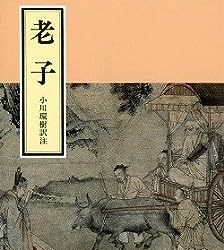
I am not ashamed to claim that Lao Tzu is the best book in the universe. This is an essential book for the world of the future. Legend has it that Lao Tzu was Confucius' senior, but it is reasonable to think that he was written much later than Confucius, in the 200s B.C., around the time of Mencius, and was written after knowing various ideas of ancient China. I guess it was. It is the culmination of ancient Chinese thought.
In areas where Chinese characters are cultured, such as Japan, China, and Korea, there is the advantage of being able to read Lao Tzu in its original text. This is something that Westerners cannot do and is a privilege of East Asians. Among them, the translation and annotation of Lao Tzu by the Japanese Chinese scholar Tamaki Ogawa is unrivaled. By the way, Tamaki Ogawa is the younger brother of Hideki Yukawa, a Nobel Prize winner in physics, and Hideki Yukawa was also familiar with Lao Tzu.
Let me point out the excellent points of Tamaki Ogawa's translation and annotations.
1) Accurate and easy-to-understand translation notes.
2) He boldly incorporates the views of Arthur Waley, a British researcher on Lao Tzu that other Japanese translators and annotators ignore, and makes his annotations solid and valid.
3) The explanation about ``proper nouns'' in the notes made me realize the fact that ``Lao Tzu hardly ever uses proper nouns,'' and I learned about Lao Tzu's careful ability to construct sentences. This is a clear departure from the Bible, which overuses proper nouns and tends to cause unnecessary conflicts.
4) The writing gives a sense of Lao Tzu's passionate soul.
For now, I will mention these four points. Tamaki Ogawa is a top-level Lao Tzu commentator.
Rei Morishita
老子最良の訳注者:小川環樹(エッセイ)
私は、「老子」を宇宙最高の書と主張して恥じない者である。これからの世界に必須の書である。老子は、伝説では孔子の先輩にあたるが、実際には孔子よりずっと後の時代、紀元前200年代、孟子の頃に書かれたと考えるのが妥当で、古代中国の諸思想を知ったうえで執筆されたのだろう。古代中国思想の集大成なのだ。
日本、中国、韓国などの漢字文化圏では、「老子」を原文で読めるというメリットがある。これは欧米人には中々出来ないことで、東アジア人の特権である。中でも日本の漢学者:小川環樹による「老子」訳注は、他の追随を許さないものがある。ちなみに小川環樹は、ノーベル物理学賞受賞者の湯川秀樹の実弟で、湯川秀樹も「老子」に詳しかった。
小川環樹の訳注の優れた点を挙げてみよう。
正確で解りやすい訳注。
日本の他の訳注者が無視しているイギリスの老子研究者:アーサー・ウェイリーの見解を大胆に取り入れ、その訳注を強固で妥当性のあるものにしている。
注にあった「固有名詞」についての解説で、「老子にはほとんど固有名詞が出て来ない」という事実を認識させられ、老子の周到な文章構成能力を知った。固有名詞を乱用し、要らぬ争いの元となりやすい聖書とは一線を画する。
老子の熱いソウルを感じさせる記述になっていること。
とりあえず、この4点を挙げておく。小川環樹は、最上級の「老子」解説者だ。
#Lao Tzu#best translation#Tamaki Ogawa#essay#rei morishita#annotation#Arthur Waley#proper nouns#passionate soul#Bible
7 notes
·
View notes
Text

JOMP BPC || January 30 || Freebie:
The Book of Songs translated by Arthur Waley
#The Book of Songs#Arthur Waley#jompbpc#justonemorepage#books#book photo challenge#book photography#chinese poetry#Not out of void but out of chaos
8 notes
·
View notes
Text
I am tired of clapping with only echoes to answer me.
The Tale of Genji, trans. Arther Waley
#the tale of genji#tale of genji#genji monogatari#books#quotes#classical japanese literature#arthur waley#ellis reads
13 notes
·
View notes
Quote
He spoke so courteously and gently and looked so kind that not the devil himself would have taken umbrage at his presence.
ch2, the tale of genji, lady murasaki (translated: arthur waley)
3 notes
·
View notes
Link
Just added to the Vintage shop!
“The Pillow Book of Sei Shonagon” by Arthur Waley (1960)
#The pillow book of Sei Shonagon#Arthur Waley#Sei Shonagon#VintageEtsy#Vintage Etsy Seller#Etsy Seller#Vintage Books#Vintage Book Seller#Book Seller#VintageCDChyld#Vintage#Etsy#books books books
0 notes
Text
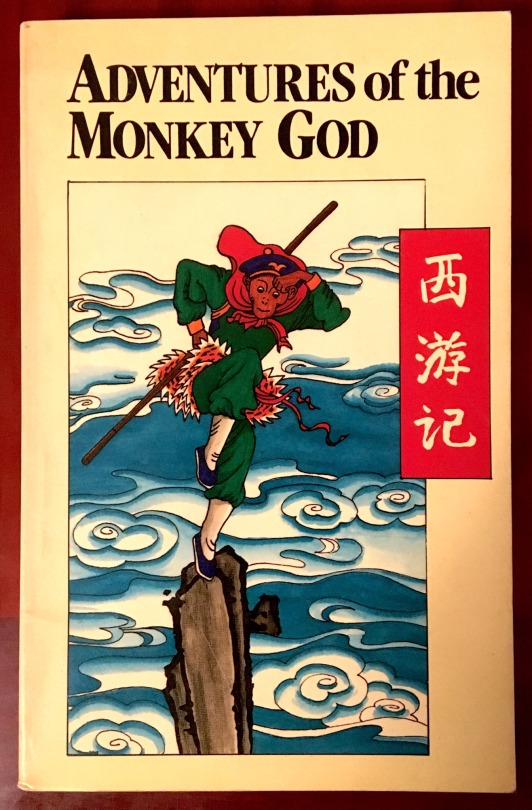

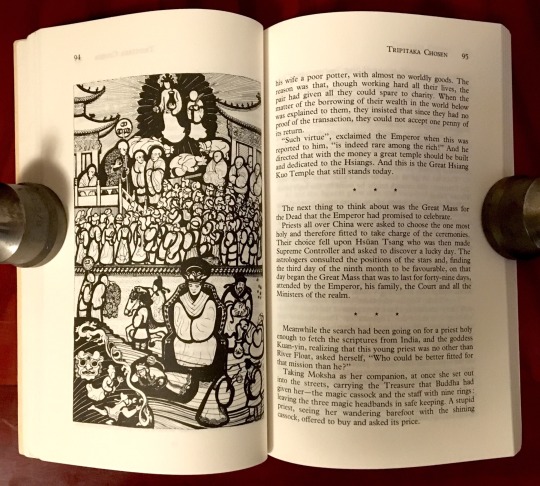
Book 166
Adventures of the Monkey God
Wu Cheng’en / Translated by Arthur Waley / illustrations by Georgette Boner
Graham Brash, Singapore 1988
The Chinese classic, first translated into English in 1942 and abridged by Arthur Waley’s daughter, Alison Waley.
#bookshelf#illustrated book#library#collection#personal library#personal collection#books#book lover#bibliophile#booklr#adventures of the monkey god#Arthur Waley#Graham brash#folktales
0 notes
Text
theres sth deeply sad abt a lot of translated works (and i dont mean some ya novel translated frm english to french. obviously.) in the imperial core being shortened/abridged bc the translator deemed those parts unimportant or straight up didnt have the cultural/historical/religious knowledge to understand WHY theyre important... not to mention how they tend to be biased in their translating to pigeonhole sfuff into western frameworks of thought like 😭
#yes i am still salty as hell abt the amnt of shitty jttw and rotk translations out there...#arthur waley is my personal nemesis... not as much as marcus' tho he truly hates that man but im like. somewhere in the top10 for sure#i also loathe how theres this trend in western tl of eastern works to like... literally translate namea.#cicada for diaochan (rotk). trinket for xiaobao (tdatc). MONKEY???? FOR SUN WUKONG??? I STILL HATE THIS THE MOST. JTTW ISNT EVEN CALLED JTTW#HE NAMED THE BOOK MONKEY AND WAS DONE WITH IT HE USED OBJECT NAMES AS THE CHARACTER NAMES I WANT THAT MAN DEAD THRICE OVER#ling.txt#there are wayy more examples btw but this is why u need footnotes in ur translations idfc if u think it's clunky#or takes away from the immersion or whatever the fuck it's better than being an ignorant piece of shit bc the tl ur reading SUCKS
22 notes
·
View notes
Text
im kinda glad nobody gives a shit about ainu ppl because if i had to see the retelling of the kutune sirka like what happened to lego monkie kid i would kill mysel,f.
#when i die and im in hell im going to chase down arthur waley and make the afterlife even worse for him#signing#^ mutual posting about lmk reminded me of this draft. this is still very true.
2 notes
·
View notes
Text

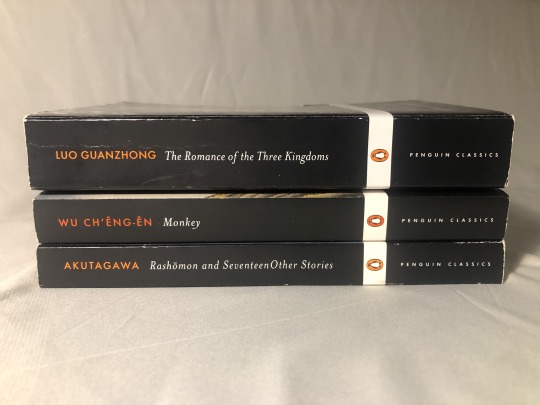
Some classic Asian literature I own:
Monkey: The Journey to the West by Wu Ch'eng-en, translated by Arthur Waley.
The Romance of the Three Kingdoms by Luo Guanzhong, translated by Martin Palmer.
Rashomon and Seventeen Other Stories by Ryunosuke Akutagawa, translated by Jay Rubin.
Rashomon and Seventeen Other Stories summary:
A collection of exuberant, imaginitive and sometimes wierd short stories by a man who's work continues to influence modern day authors.
Some lovely quotes from Rashomon and Seventeen Other Stories:
“I don't have the strength to keep writing this. To go on living with this feeling is painful beyond description. Isn't there someone kind enough to strangle me in my sleep?”
“I have no conscience at all -- least of all an artistic conscience. All I have is nerves.”
“Yes -- or rather, it's not so much that I want to die as that I'm tired of living.”
“Truly human life is as evanescent as the morning dew or a flash of lightning.”
“In a word, tears like this light a modest lamp of human love amid the gathering dusk of human suffering.”
I made another two similar posts, one for Monkey: The Journey to the West and one for The Romance of The Three Kingdoms.
#nejj bookblr#asian literature#penguin classics#classic academia#light academia#dark academia#chaotic academia#romantic academia#books#book quotes#booklr#book review#book recommendations#readers#reading#long reads#literature#lit#book rec list#home library
48 notes
·
View notes
Text
Translator Arthur Waley (Essay)
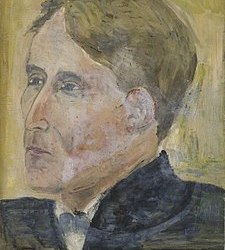
This man, without coming to China or Japan,
Translated "The Tale of Genji" and "Lao Tzu" into real English.
He was a translator and poet.
I wanted to know the secret of his language-learning skills,
The book I'm unraveling doesn't have that description.
It's a pity.
Arthur David Waley was an Englishman of Jewish descent, graduated with honors from Rugby School and Cambridge University, and due to his poor eyesight, gave up his conventional elite career and began working at the British Museum in 1913. Here, he came into contact with unknown oriental literature, learned Chinese, Japanese, and Ainu on his own, and presented Chinese and Japanese classics in concise and easy-to-understand English.
I have an example.
秋風起こって白雲飛び、
草木黄落して 雁 南に帰る。
蘭に秀有り 菊に芳有り、
佳人を懐うて忘るる能わず。
「秋風辞」 漢の武帝
H. A. Giles:
AMARI ALIQUID
The autumn blast drives the white
Scud in the sky,
Leaves fad, and wild geese
Sweeping south meet the eye,
The scent of late flowers
fills the soft air above,
My heart fill of thoughts
of the lady I love.
Waily:
The Autumn Wind
Autumn wind rises; white clouds fly.
Grass and trees with; the geese fly south.
Orchids all in bloom, chrysanthemums
smell sweet.
I think of lovely lady, nor can forget!
Comparing the two translations, I think Waley is more concise and the translation is more accurate. The difference is particularly noticeable in the third line. I think that the charm of English lies in its brevity, and Waley's translation is accurate. Giles's translation is a bit over-embellished. On the other hand, the two types of flowers are simply called flowers. Waily also translates "orchid" and "chrysanthemum" correctly. Also, it's nice to see the poet's meaning and end the poem with a "!" mark.
#Translator#Arthur Waley#essay#rei morishita#The Tale of Genji#Lao Tzu#concise#accurate#Cambridge University
4 notes
·
View notes
Text

“Behind every song one might find some powerful concern— desire, anger, reverence, pain—set in its living context. Other Confucian classics treated outward things: deeds, moral precepts, the way the world worked. But The Book of Songs was the classic of the human heart and the human mind. Each reader of The Book of Songs has sought to understand the poems as they “originally” were, and each reader has found in them his or her own vision of the remote past, a vision of basic humanity.” —Stephen Owen
#The Book of Songs#Arthur Waley#Stephen Owen#chinese literature#books#book photography#current reading#Not out of void but out of chaos
5 notes
·
View notes
Text
Book References:
The World of the Shining Prince: Court Life in Ancient Japan by Ivan Morris
The Pillow Book of Sei Shonagon by Sei Shonagon, Translated by Arthur Waley
The Diary of Lady Murasaki by Murasaki Shikibu, translated by Richard Bowring
The Tale of Murasaki by Liza Dalby
East Wind Melts The Ice: A Memoir Through The Seasons by Liza Dalby
The Kagero Diary: A woman’s autobiographical text from 10th Century Japan translated by Sonja Arntzen / The Gossamer Years: The Diary of a Noblewoman of Heian Japan translated by Edward Seidensticker (both the same thing)
The Izumi Shikibu Diary: A Romance of the Heian Court by Izumi Shikibu, translated by Edwin Cranston
Others:
Five Women Who Loved Love: Amorous Tales from 17th Century Japan by Ihara Saikaku, translated by Theodore de Bary (Edo)
Hojoki: Visions of a Torn World by Kamo-no-Chomei, translated by Yasubiko Moriguchi and David Jenkins (Kamakura)
Principal authors and important ladies:
Murasaki Shikibu, Izumi Shikibu, Sei Shōnagon, Ise no Osuke, Uma no Naishi, Akazome Emon, Sagami, Daini no Sammi (daughter of Murasaki!), Koshikibu no Naishi (daughter of Izumi!), Nakazukasa (daughter of Ise no Go and Prince Atsugatsu), Yoshiko Joō (granddaughter of Emperor Daigo), Michitsuna’s Mother (that’s the only name she is known by) and Suugawara no Takasue’s Daughter (the only name she is known by).
20 notes
·
View notes
Quote
Sorrow had fallen too fast upon sorrow; life as he saw it now was but a succession of futile miseries.
ch9, the tale of genji, lady murasaki (translated: arthur waley)
1 note
·
View note
Text
Productivity Check-In: 11/3/23
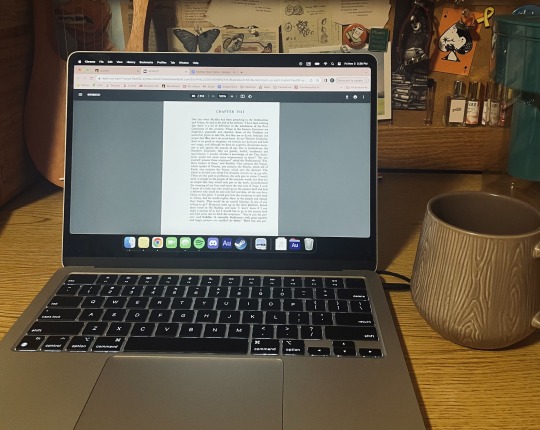
Classes:
Latin 1 (midterm)
Greek Prose (quiz)
Work:
Start reading Aeschylus' Libation Bearers, translated by Sarah Ruden
Continue reading Wu Cheng'en's Monkey, translated by Arthur Waley
Thoughts:
Slow day work-wise, but I got dinner with friends and got to see Merry Wives of Windsor performed so still busy and fun!
#productivity challenge#studyblr#history major#study motivation#study blog#studyspo#classics major#classics student#study inspo#ancient history student
12 notes
·
View notes
Note
Hey I really like your art and au! But can you please not refer to the disciples by their Arthur Waley names? That's not their names. As a Chinese fan, I really find it hurtful when non Chinese people don't at least try to use the Pinyin names. 😞
Thanks I appreciate it. And to be honest I had no idea what you meant for a second because I didn't know who Arthur Waley is since I don't read his translation but I'm assuming you mean calling Zhu Bajie and Sha Wujing (their Pinyin names which I use more than their english nicknames because those are their actual names) Pigsy and Sandy who got those nicknames because of the translations of the traditional Chinese characters of their names.
Just in case tho I looked up anywhere I could to find whether or not these names where somehow disrespectful to say and I can't find a single thing for what you are talking about. These are the names I grew up hearing so that's why I use them interchangeably. Not to mention that's what they are called on lmk (I'm assuming you were talking about my Triad au since that's the only au I have which is lmk)
Now I know that I have a LOT to learn about Chinese culture but I am willing to learn and have put a lot of time and effort into doing so. (I do a great deal of research on cultures and religions so that I can remain respectful) That being said if I'm wrong about something or any of you feel like I'm being disrespectful (if I'm ever disrespectful about something like this I swear it's on accident) you guys can absolutely feel free to come to me and tell me and I'll do the research and admit when I'm wrong. It doesn't bother me to be wrong at all. A little embarrassing maybe but I can get over it. What's important to me is doing what's right, so if I have to correct my behavior that's fine by me. However, you do need to bring proof that you're right if you're going to call me wrong let alone accuse me of doing something I'm not. I do use their pinyin names I just don't put the accents. (tho I do say the accents when I say their names. I put a lot of time into researching how to say names from other cultures before I ever say them.)
#/nm btw#i know this might sound aggressive but i promise i'm not upset or mad or anything like that#i'm mainly just trying to understand where you're coming from#skittle answers
30 notes
·
View notes
Text

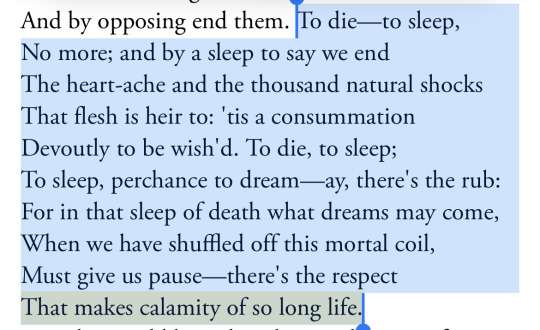
1. from Aoi No Uye (Princess Hollyhock), revised by Zenchiku Ujinobu (1414-1499?), translated by Arthur Waley (1889-1966)
2. from Hamlet, by William Shakespeare (1564-1616)
#web weaving#shakespeare#noh theater#zenchiku ujinobu#comparative literature#my post#screams from the abyss#hamlet#aoi no uye#id in alt text
16 notes
·
View notes